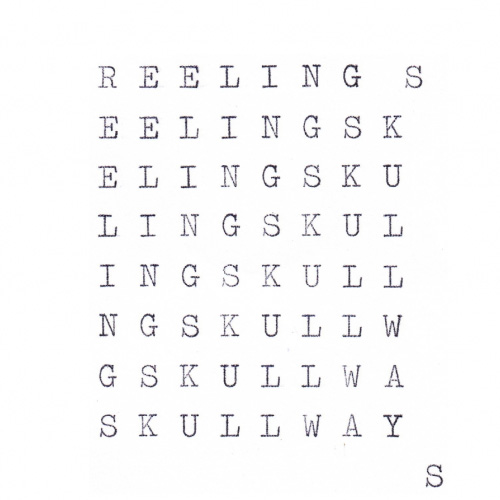Over the past six years, Punch Drunk has documented postmillennial Bristol sound system culture with dedicated fervour. Taking the exploratory nexus of dubstep within the ‘BS’ postal code as a starting point – a bass virus that’s morphed through generations, scenes and surroundings – label boss Peverelist has presided over a plethora of homely grooves and skewed curveballs alike. The prevailing musical thread is simple warmth, with strong, deep and powerful low-end acting as anchor. Indeed, the Punch Drunk back catalogue taps neatly into a woozy, dub-infused lineage that stretches back decades: blues parties, carnival systems, free parties, basements; Guinness, spliff, stacks.
Although much of the label’s output has retained a rooted reverence for traditional dub(plate) culture, there also has been a vehemently futurist strand running parallel to this – not least in the steely, alien mechanisations of Peverelist’s own productions. It’s firmly to this side of the Punch Drunk audio sphere that Bass Clef’s masterful Reeling Skullways is aligned: a powerful beast marrying elements of (proper) electro, dub and techno to fine, alchemical effect.
Having been involved with the first generation Bristol dubstep scene (though he’s long since relocated to Hackney) Ralph Cumbers’ output under the Bass Clef moniker has been both adventurous and prolific. Over the last year or so, he’s made forays into modular synthesis under the alias Some Truths and has cast eyes and ears back to his halcyon days of raving with cassette Inner Space Break Free and previous Punch Drunk 12" ‘Rollercoasters Of The Heart’. Oh, and in between he somehow found time to record no fewer than 12 albums under the alias Coseph Jonrad, which whirled his own personal listening history into Oneohtrix-style looped samplescapes.
Before that recent burst of productivity, his last vinyl album release, May the Bridges I Burn Light The Way, married live instrumentation – Cumbers is a virtuoso trombonist – to all manner of unbalanced sub-low electronic experiments. But where Bridges felt like extensions of his legendary freeform live set, Reeling Skullways is far tighter in focus and execution. The sub-heavy narcotic dreamscapes of old are now tempered with razor sharp electric lines, while a cohesive narrative drive and progression ensures this is every bit the complete LP.
‘Keep Hoping Machine Running’ sets an alternately bleak and uplifting ambient tone with various filters applied to a scant three chords, as heavily oscillated leads squall out to the far reaches. ‘Walworth Road Acid Trapdoor’, meanwhile, excels in a headstrong bounce, building slow and long with fulsome kicks and a wicked little bass riff delivering bouncy, stern, heads down fulfilment. ‘Hackney – Chicago – Jupiter’ befits its grand title, landing somewhere akin to Sun Ra bumping into Jamal Moss – replete with full bank of hardware – in some grimy squat rave off Mare Street, and getting Boddika to engineer the result into something functional. Bloody great.
Indeed, as is unsurprising given Cumbers’ devotion to hardware, there is a strong analogue accent to most of these tracks, a cranky imperfection that kicks like the proverbial. ‘Electricity Comes From Other Planets’ is a case in point, sounding as it does like a thrilling stand off between various bits of old kit – all jagged edges and ticking drive.
But while much of Reeling Skullways juxtaposes substance-fuelled stumble with utilitarian dancefloor discipline, to joyous effect, tracks like ‘Embrace Disaster’ place as much emphasis on innocent, wide-eyed melody. It’s in the meeting of all these elements, with 12 minute epic ‘A Rail Is A Road & A Road Is A River’, that the album reaches its natural zenith. Rising gossamer strands of light twinkle into view for a full three minutes, joining shuffling hats, reverberating snares and a simple four-note melody. Eventually the track about-turns, blasting off to some aeons-deep galactic plain – simply beautiful.
There is so much soul – such vehement chutzpah – buried with Reeling Skullways that it’s difficult to view it as anything other than an unmitigated triumph. The only worry is that, with Cumbers a low-key producer twinned with a low-key label, it might slip beneath the radar. Don’t let that happen to one of the strongest and most fully realised LPs to emerge from the bass spectrum this past half-decade – pick up, post-haste.


